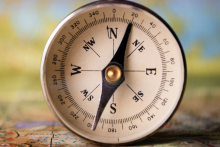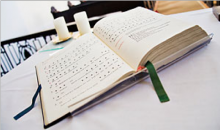Course description
Course organisation
Call for tenders
Annexes to the call for tenders
Results
General contents
The PhD course in “Humanities”, which is proposed for renewal after accreditation for the XL cycle, offers a high-level training path divided into three curricula:
- “Philology and Literatures of Antiquity”,
- “Modern and Contemporary Cultures and Literatures”,
- “Cultural Heritage”.
The course reflects an integrated and complex idea of humanistic studies understood as a set of interconnected knowledge at a synchronic, diachronic and methodological level, as well as open to new digital contexts. The high level of philological, literary, historical, historical-artistic, archaeological and demo-ethno-anthropological training is enriched, in fact, by mutual contacts between disciplines, ranging from antiquity to the contemporary age in a perspective of innovation and digital transformation. Furthermore, the comparison with the international academic context is promoted in a perspective of exchange and reciprocal relationship.
Specifically, the three curricula are respectively dedicated to:
- the organic study of antiquity (Altertumswissenschaft), understood as the matrix of national and European culture, through the instrument of classical philology and the testimonies of Greek-Latin literature also in a perspective of reception of the ancient;
- the study of European cultures and literatures of the modern and contemporary age with approaches aimed at deepening the linguistic and communicative aspects, the interactions between literary production and other aesthetic forms, intercultural and intermedial relations;
- the multidisciplinary study of cultural heritage, both material and immaterial, from ancient to contemporary, with a view to deepening the categories of the archaeological, demo-ethno-anthropological and historical-artistic fields, also declined in their digital applications.
The Course promotes co-supervised theses, with the opportunity to spend a period of at least six months in foreign universities, a period of at least one month in other Italian universities and, based on the research projects carried out, also a period of at least six months in an area of the Public Administration and in institutions and research centers.
Learning objectives
The PhD course aims to train high-level professionals at national and international level who are able to:
- frame the humanities in the light of the dynamics of interconnection between disciplines to respond to the challenges posed by contemporaneity in the new European and global context;
- investigate, with innovative research methodologies and critical orientations that are also attentive to gender issues, the processes of transmission of cultural forms and literary texts, from ancient to contemporary, framing genres, codes, contexts and deepening their philological, linguistic and hermeneutic aspects, also in the interactions between literary space and extra-literary spaces (archaeological, historical-artistic, demo-ethno-anthropological), with reference to cultural dynamics considered in a synchronic and diachronic sense;
- analyze, with plural approaches and methods open to contributions from the digital field, cultural heritage (archaeological, historical-artistic, demo-ethno-anthropological) in their mutual implications and in their systemic relationships with literary production between tradition, conservation, renewal, fruition, also with a view to enhancing the identity of the territories of Southern Italy for a sustainable and circular tourism ecosystem;
- critically engage with methodologically updated perspectives and approaches of humanistic research;
- apply specialist disciplinary and interdisciplinary knowledge to projects and initiatives for the promotion, communication and dissemination of humanistic knowledge, also with a view to enhancing existing and historically founded paths of tradition, circulation and reception of literary texts and cultural heritage;
- promote the dissemination of data and the enhancement of research results by ensuring open access to the public in line with the principles of Open Science and Fair Data.
- develop a high level of training for specialists in cultures, literatures and cultural heritages with a specific focus on the dynamics of the change in cultural and intermedial forms and systems that allow them to tackle research tasks and cultural management tasks at a high level of excellence in the European context.
- promote, on the basis of collaboration agreements already stipulated and to be stipulated with European universities, bilateral and intercultural study paths for the achievement of a double degree or a joint degree.
Organizzazione del corso
Associated PhD pursuant to art. 3, paragraph 2, Ministerial Decree 226/2021 - in agreement with the University of Bari “Aldo Moro”
Educational activities
Expected teachings
- Literatures and cultural heritage: ideas, methods and models
- Literatures and cultural heritage: legacy, memory, tradition
- Literatures and cultural heritage: communication and valorization.
Other educational activities
- Linguistic improvement
- Computer improvement
- Management of research and knowledge of European and international research systems
- Valorisation and dissemination of results, intellectual property and open access to research data and products
- Core principles of ethics, gender equality and integrity
- Seminars
- Laboratory activities
Admission requirements
All Master's Degrees
Job and professional opportunities
The skills acquired by the PhD in Humanities prefigure employment opportunities in professional activities in public and private bodies in the field of humanistic scientific research, in institutions that promote and organize cultural activities, in international organizations, in human resources training services, in the contexts of personnel management of public and private companies, in cultural promotion and dissemination and in the organization of events.
Other opportunities concern the sectors of publishing, cultural journalism, training and retraining projects, creation of tools for linguistic services and cultural content for information databases. The high-level training skills of the PhD in Humanities also allow employment opportunities in management, analysis, re-elaboration and production (including digital) of literary texts and, in general, of historical-cultural testimonies from ancient to contemporary.
The PhD course in Humanities also promotes a high level of specialization in the professional profile of expert in cultural heritage and its enhancement, in line with the renewed strategies of protection and promotion and with the centrality of the binomial culture and tourism in the development plan of Italy. The specialized skills acquired are oriented to satisfy employment needs in the academic-scientific field and in the public and private sector, nationally and internationally: universities, superintendencies, museums, archives, various units of the Ministry of Culture, centers, bodies, businesses, third sector, cultural industry. In the reference areas for the archaeological, demo-ethno-anthropological, historical and historical-artistic areas, the aim is to train operators, consultants, freelance professionals expert in the enhancement of cultural heritage, urban and territorial regeneration, enhancement and enjoyment of cultural assets, tourism and cultural intermediation, communication, management/setting up of museums, including ethnographic and territorial ones, archaeological areas, planning of sustainable development of the territory, also based on the use of cultural resources.
Curricula with educational activities
- Philology and Literatures of Antiquity
The curriculum “Philology and Literatures of Antiquity” is dedicated to the study of the literary production of Greco-Latin antiquity considered in its phenomena of direct and indirect tradition and also in the expressions (literary and extra-literary) that concern its reception in European cultures. Interpreted with a philological method and according to traditional but of renewed interest critical orientations (e.g., thematic criticism and semantic criticism) and, moreover, with the endorsement of the most recent contributions of digital philology, the literary texts of antiquity are examined with attention to the genres to which they belong, to the historical milieu, to the ideological orientations of the author in an intertextuality perspective along the paths of production, circulation and transmission. Furthermore, a multidisciplinary approach is adopted that takes into account the relationships that, at a synchronic level, connect literary production with other expressive forms of classical culture in the archaeological, artistic, demo-ethno-anthropological fields. The diachronic dimension applied to the analysis of literary texts and their phenomena of translation and adaptation even in later ages favors the objectives of valorizing classical memory at the basis of numerous aspects of European cultural identity. - Modern and Contemporary Cultures and Literatures
The curriculum "Modern and Contemporary Cultures and Literatures" aims to provide transversal knowledge in the analysis of the multiple textual forms in an intercultural and intermedial perspective, which allows to interpret the forms of the modern and the contemporary through tools drawn from the most consolidated critical methodologies. The interdisciplinary study of literary, cultural, aesthetic and gender issues, connected with the development of the currents of criticism and the different cultural orientations, with attention also paid to the comparison between today's cultures in the era of globalization, aims to recognize the role of cultures and literatures as tools for interpretation, knowledge and transformation of reality. The objectives of the curriculum concern the formation of specific skills in the study of the various textual forms from the modern era to the present day and to the most recent lines of critical investigation, with in-depth studies of a linguistic nature as well as relating to the history of the text as a phenomenon placed between tradition and innovation, continuity and discontinuity in the context of human events. - Cultural Heritage
The "Cultural Heritage" curriculum focuses on archaeological, anthropological, historical and historical-artistic research, knowledge, recovery, management and enhancement in the field of tangible and intangible cultural heritage. A multi- and interdisciplinary training approach is proposed in the research methods and in the variety of sources analyzed, with a projection on current events in the fields of enhancement and protection, enjoyment, communication, promotion of territories and their historical and cultural heritage, as well as in the study of the presence and fortune of cultural heritage in literature from antiquity to the contemporary. Great attention is paid to methodological innovation and digital applications for research on cultural heritage, their management and enhancement, in the perspective of a development of culture and tourism in Italy, with a specific interest in the South and in a European reference framework. The curriculum aims to provide high level knowledge and methodological skills to analyze landscapes, territories, material and settlement cultures, archaeological, architectural, artistic, demo-ethno-anthropological, historical and archival heritage, traditions and cultural inheritances, over a broad diachronic span from prehistory to the present. It also aims to promote scientific knowledge of the cultural heritage and traditions of the territories to enhance them, promote them, protect them and investigate their impact on literature and cultures from antiquity to the contemporary world. Attention to innovative methodologies and digital applications is also directed to the formation of skills in the management and development of cultural heritage.







